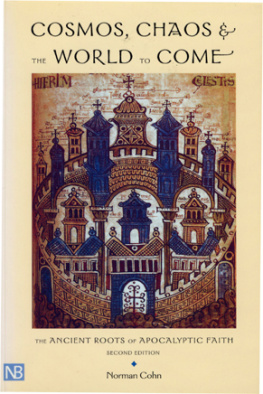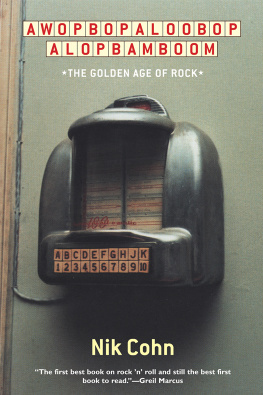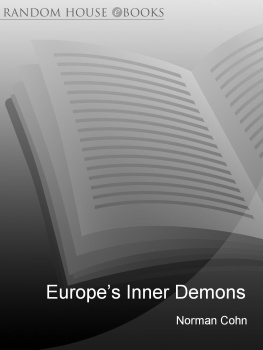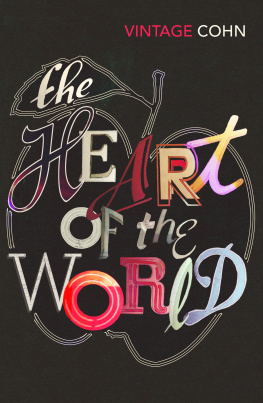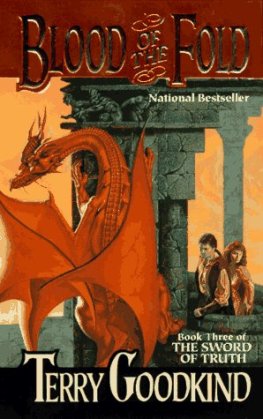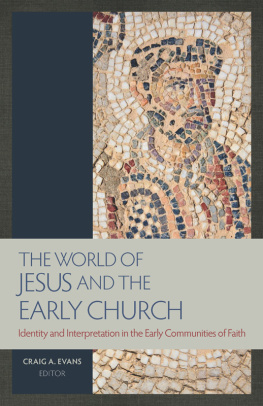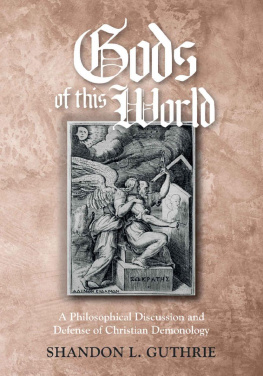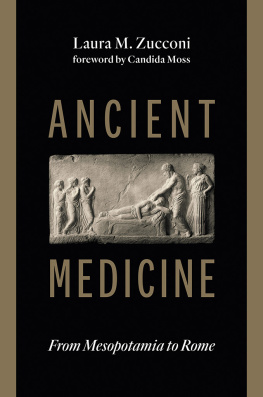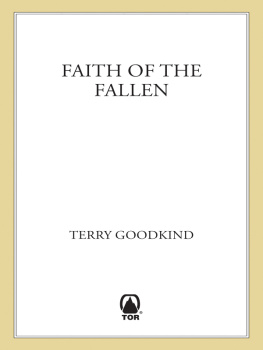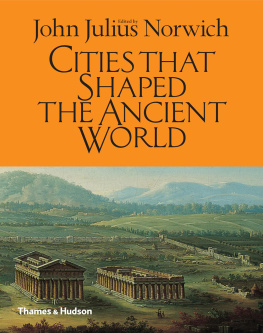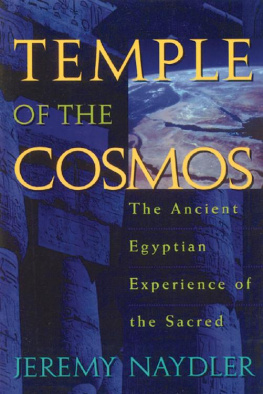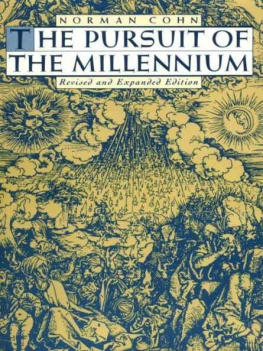More praise for
Cosmos, Chaos and the World to Come
[A] rich tapestry encompassing history, archaeology, popular culture, mythology and religion. Cohn's depth and breadth of knowledge is marvelous, his enthusiasm for the subject is infectious. Well-documented and extremely readable, this is highly recommended for religion, history, and seminary collections.Library Journal
An incisive study of ancient religion and the rise of belief in an impending apocalypse. A tight, intelligent study.Kirkus Reviews
Cohn's lucid writing style and his detailed notational listings will make Cosmos, Chaos and the World to Come an interesting read and a useful tool for students of ancient history and religion.Charles Odahl, Historian
The author has given us a panorama of beliefs about the driving forces of good and evil in the universe, extending back to the earliest settled communities in the Near East. He has shown the value of the comparative study of religion in understanding the origins of some of the most important among traditional Christian beliefs. A stimulating work of learning.W. H. C. Friend, Church Times
COSMOS, CHAOS AND THE WORLD TO COME

Cosmos, Chaos and the World to Come
The Ancient Roots of Apocalyptic Faith
SECOND EDITION
Norman Cohn
Yale Nota Bene
Yale University Press New Haven and London
First published in paperback in 1995 by Yale University Press
Reprinted in 1999
This second edition first published as a Yale Nota Bene book in 2001
Copyright 1993, 2001 by Norman Cohn
All rights reserved. This book may not be reproduced, in whole or in part, in any form (beyond that copying permitted by Sections 107 and 108 of the US Copyright Law and except by reviewers for the public press) without written permission from the publishers.
For information about this and other Yale University Press publications, please contact:
U.S. Office: sales.press@yale.edu www.yale.edu/yup
Europe Office: sales@yaleup.co.uk www.yaleup.co.uk
Set in Baskerville by Best-set Typesetter Ltd., Hong Kong
Printed and bound in Great Britain by The Bath Press, Avon
Library of Congress Control Number: 2001089485
ISBN 0-300-09088-9 (pbk) second edition
ISBN 0-300-06551-5 (pbk) first edition
A catalogue record for this book is available from the British Library.
Acknowledgement is made of kind permission to quote from the following: G. Vermes, The Dead Sea Scrolls: Qumran in Perspective (Collins, London, 1978) and G. Vermes, The Dead Sea Scrolls in English, 2nd edition (Penguin, Harmondsworth, 1975). Quotations from the Old Testament (or Hebrew Bible) are generally taken from the Revised Standard Version. However, quotations from the Book of Daniel are taken from the New English Bible, and so are a number of other passages, duly indicated in the Notes. In keeping with critical orthodoxy the divine name has been rendered throughout not by Lord but by Yahweh. Quotations from the New Testament are taken from the NEB, except for a couple of quotations from the RSV, also indicated.
Frontispiece: God fighting Zu. Assyrian relief 865860 BC from Nimrud, Temple of Ninurta. British Museum
Is there any thing which can either be thoroughly understood, or soundly judged of, till the very first cause and principles from which originally it springeth be made manifest?
Richard Hooker, Of the Lawes of Ecclesiastical Politie (1593)
Contents
Foreword to the New Edition
W hen this book was first published, in 1993, some even of its best-disposed critics found Chapter 13, Jews, Zoroastrians and Christians, too brief to be convincing a friend even called it rather a small tail for such a very large dog. On reflection, I agreed. I trust that the new Chapter 13, with accompanying Notes, will put the matter right.
The Appendix, which is also new, tells how the Avesta first became known in Europe and how the question of Zoroastrian influence on Jews and Christians was first raised.
Finally, a further acknowledgement is due. The above changes could not have been made without much additional research and I was at first uncertain whether, in my mid-eighties, I could do that. It was my old friend Marina Voikhanskaya who insisted both that I could and that I should. How right she was, on both counts!
Wood End,
Hertfordshire, England 2001
Foreword
T his book investigates the deepest roots and first emergence of an expectation which is still flourishing today. That there will shortly be a marvellous consummation, when good will be finally victorious over evil and for ever reduce it to nullity; that the human agents of evil will be either physically annihilated or otherwise disposed of; that the elect will thereafter live as a collectivity, unanimous and without conflict, on a transformed and purified earth this expectation has had a long history in our civilisation. In overtly Christian guise it has exercised a powerful fascination down the centuries, and continues to do so; and in secularised guise it has been easily recognisable in certain politico-social ideologies. On the other hand there have been great civilisations, some of them lasting thousands of years, that knew nothing of any such expectation. So where and how did the expectation originate? And what kind of world-view preceded it?
Those questions have been preoccupying me, on and off, for almost half a century in fact ever since I wrote my first study of collective beliefs, The Pursuit of the Millennium, in the years immediately after the Second World War. They had, of course, preoccupied others before me; but the standard answers left me unsatisfied, I doubted whether primitive or archaic peoples everywhere and at all times really imagined time as revolving in long, repetitive cycles, punctuated by periodic destructions and re-creations of the world and/or of mankind. And was it really so certain that the first to expect a single, final consummation were Jews and Christians? The whole matter seemed to call for re-examination.
Some twenty years ago I set out to re-examine it. This book summarises the conclusions which bit by bit, over that long span, have forced themselves upon me.
Wood End,
Hertfordshire, England
Acknowledgements
F or several years after I began work on this book I was Astor-Wolfson Professor in the University of Sussex, a personal appointment that left me far more time for research than is normally enjoyed by British academics. I am correspondingly grateful to David Astor and to the Wolfson Foundation. I also recall with keen appreciation the year that I spent as a Fellow of that admirable academy, the Netherlands Institute for Advanced Study at Wassenaar.
During my long haul I was greatly fortified, stimulated and enlightened by talks with, and letters from, Mary Boyce and Robert Carroll. Finally they crowned their benefactions by reading and commenting on the completed manuscript. I am truly beholden to them both. My thanks go also to Geza Vermes for encouraging me to undertake and persevere with this enterprise, and to him and to Henry Saggs for their thoughtful and fruitful bibliographical suggestions. To Robert Baldock and his colleagues at the Yale University Press, London, I am indebted for the scrupulous care with which they prepared the book for publication.
What I owe to my wife and to my son Nik is beyond all reckoning. But for their encouragement the book would never have been completed, and but for their criticism it would have had even more shortcomings than it has.
Next page
